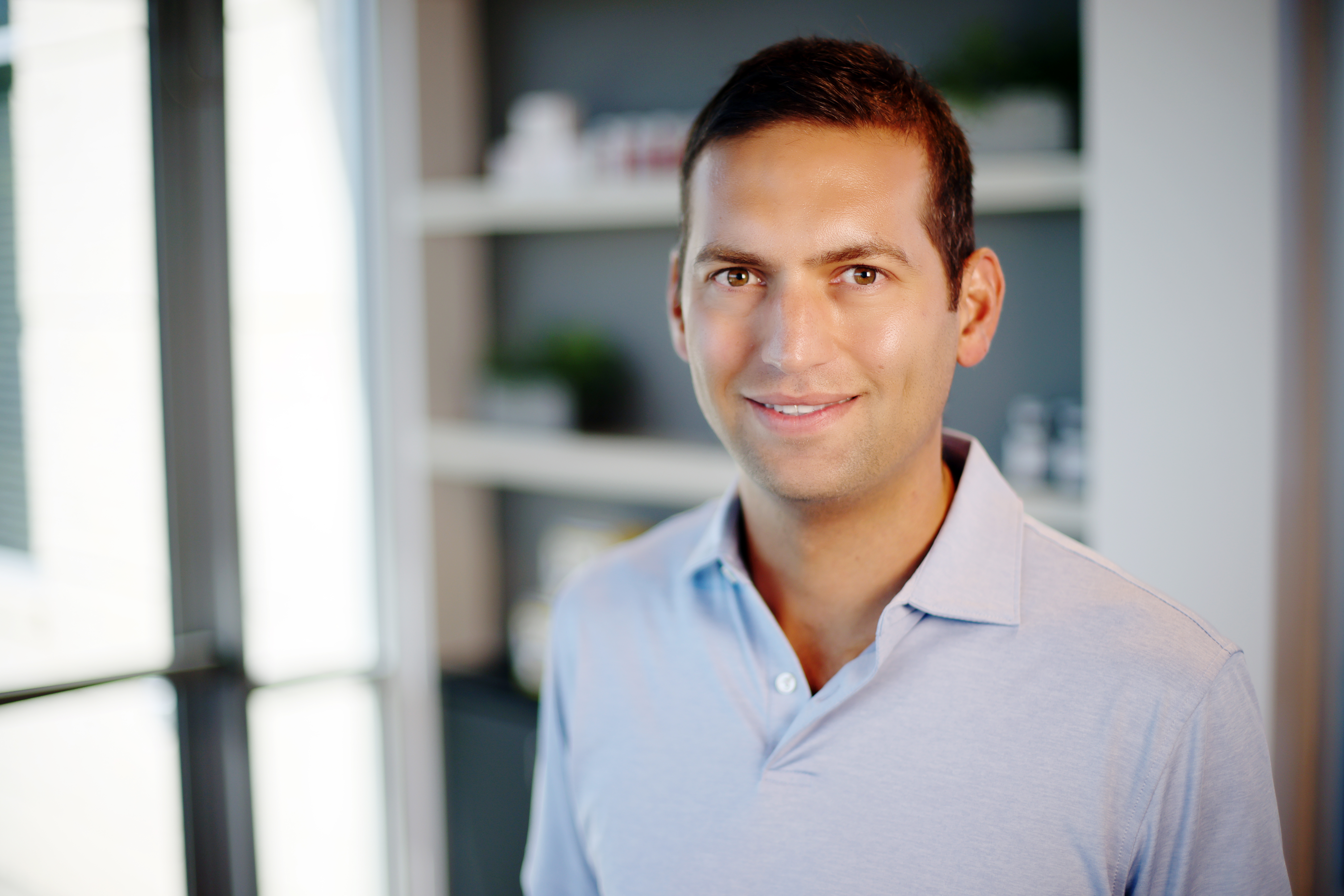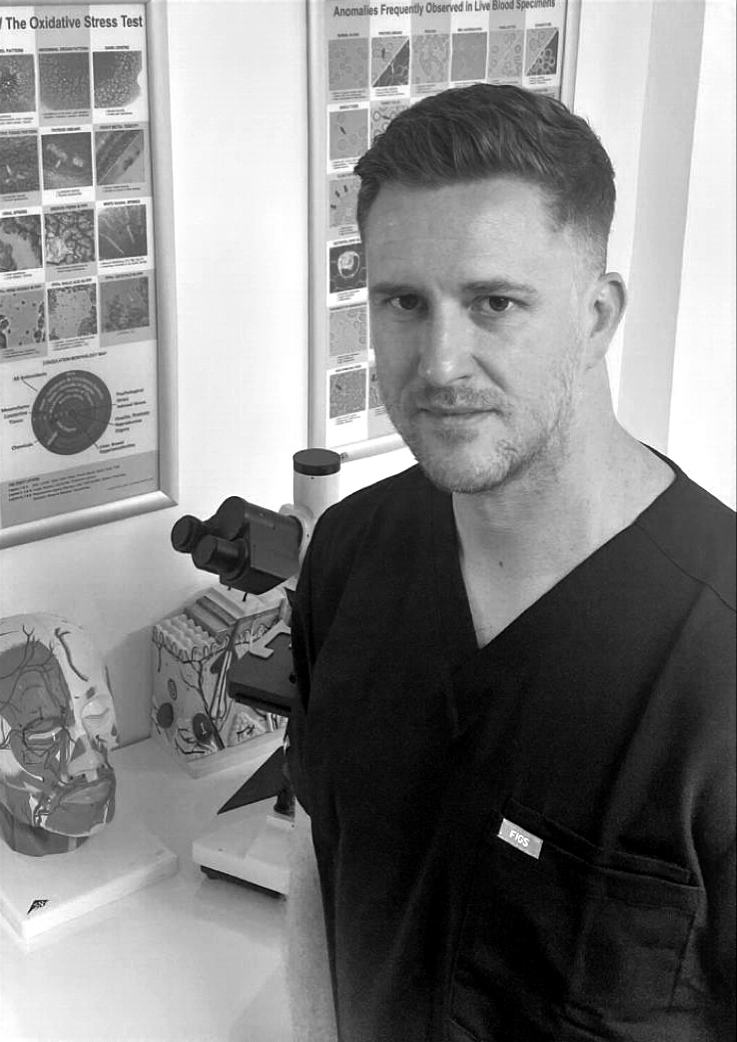We had the absolute pleasure of meeting and interviewing Dr Ernie Navarro MD from Gladden Longevity. We talked about the benefits of patient-first care, all the ways GlycanAge can help both clients and physicians and the real role genetics hold in predicting future conditions.
Seeing how you got your start at the ER and made a switch to the longevity industry, I’m sure you’ve encountered a lot of different approaches to patients. Can you describe what personalized medicine looks like at Gladden Longevity?
Well, the ER is a beast in terms of never knowing what will come through the door. You just have to deal with it and get through emergencies, especially in a trauma centre. But you also get people that just kind of use the emergency room, almost like their primary care. So you get a lot of familiar faces coming through the door, almost on a weekly basis.
Moreover, it’s recommended to have a follow-up with patients, which is unfortunately difficult to do in the ER setting. That sometimes leads to having to admit people to the hospital in order for them to get the care they need.
You also send a lot of people home with recommendations but have no idea whether something happened - were they able to get the care they needed, are they doing any better?
But here at Gladden Longevity, we’re able to do a comprehensive type of workup, and we're not limited to what's covered by insurance so it gives us more freedom to do what’s best for the client.
Even at the most basic level of testing we do, we are able to get much more information than you would get at almost any clinic. Because of this depth of testing in different categories, our clients are able to focus on a specific area.
For example, some choose to focus on cardiac health, gut health, or autoimmune disease. Then we tailor our testing to focus on what they are trying to achieve while still getting a comprehensive picture.
It’s nice to have this freedom to choose from hundreds of labs in order to provide our clients with the best service, whether we’re testing their gut health, hormone levels or biological ages.
Detailed testing has a lot of benefits, one of the most important being that it helps us figure out what medication you would actually benefit from. Working in this type of environment, you get to develop a very close relationship with clients. They get to talk to nutritionists, fitness specialists, MDs and others. That way we can truly support them and set them up for success.
If someone comes to you saying they don’t feel their age, what would your process of helping that person look like?
One of the first things we do is ask our clients - What age did you feel your best at and what age are you claiming for yourself now? Understanding their optimal age is so important in this journey.
Because we offer such comprehensive testing we are able to provide our clients with a Mosaic of Ages. We are only as young as our oldest age. This helps us prioritize what we need to focus our efforts on.
How do you use GlycanAge in Gladden Longevity and what first attracted you to our test?
We have seen through our extensive testing that inflammation is one of the biggest drivers of ageing. It really impacts your entire system as well as other hallmarks of ageing so this is a big focus for us.
GlycanAge is a great measure of chronic inflammation. We have seen how lifestyle changes, hormone optimization, etc. can impact our biological ages.
We use it on everyone. Our normal model is having people come in here twice a year for like a month of testing. GlycanAge is great proof that different lifestyle interventions work - a combination of diet, fitness, sleep, stress management and so on.
Addressing inflammation is foundational for us, and it’s so nice to see how people are progressing. We see their GlycanAge go up and after interventions, we see it go down. And it's very clear when it shoots up that there was a clear reason, like Covid or something.
So people who are more sedentary, eat the standard American diet, and overall do a lot of stuff that just contributes to more inflammation, have more mature glycans. That's what we're trying to avoid.
We found hormones to be important as well. Menopause and even andropause play a huge role in peoples’ GlycanAge. If you’ve had a history of chemotherapy, that puts a massive amount of stress on the system. This is evident when we get their results and it serves as a big wake-up call.
A huge factor in this is the way results are presented. You can tell a client they have good or bad telomeres or blood vessels, but it doesn’t mean a lot to them. However, a GlycanAge result, presented in the form of age helps them get a better understanding of what’s going on.
We've had people come in and start testing with us and they’re 50 or 55 or whatever, but their GycanAge is 80 years old. That helps us motivate them and also reassure them that we can absolutely improve it. It's not like their result is going to go up, it can only improve from there.
Gladden Longevity goes beyond physical symptoms, you also help people with mental, relational and spiritual health. Can you explain that process?
Life Energy is one of our 4 primary circles at Gladden Longevity. The importance of mindset, environment and stress is so important. We’ve seen how stress especially can sabotage virtually every aspect of someone’s health. Stress can cause brain fog, poor gut health, weaken the immune system, affect your thyroid and hormone function, and more. We use tools like MaxPulse, Brain Tap, and NeuX to assess autonomic nervous system balance as well as to reboot or balance it.
Stress can also cause inflammation. Your cortisol will impact everything in your system. That’s why we test adrenal function and cortisol curves, as well as the balance between sympathetic and parasympathetic tone. We see a lot of clients who are CEOs or entrepreneurs, so it's very typical to see a more kind of sympathetic dominant profile.
We want to be aware of it and mitigate it because it drives the ageing process. The way we help is completely personalized to the client. Some love meditation, while others struggle with it, the same goes for exercise.
A lot of our clients wear rings or some sort of device to track those numbers because deep restorative sleep is just so important to be successful in any program. So you can do all sorts of stuff, stem cells or plasmapheresis or whatever. But if you're not sleeping or your stress is through the roof, it'll sabotage the entire program.
We've seen that stress can make you dumb. People can be brilliant, but when you're really stressed and that cortisol is out of whack, you forget stuff, and you're absent-minded.
Can you describe some of your favourite patient transformations?
We have had several dramatic transformations. A few come to mind immediately. One gentleman with Afib, CHF, overweight, anxiety, and GOUT started with us. Was on blood thinners, antiarrhythmics, antidepressants, gout medications and 4 blood pressure medications.
In the course of a few months, was out of Afib (without a procedure), lost weight (has now lost 40 + pounds) has weaned down on all of his BP meds, and is completely off his gout medication without a flareup since. His energy, and brain clarity are great. Off the antidepressant and Xanax are needed occasionally.
Another couple started, both with autoimmune issues, poor body composition, inflammation, low VO2 max, etc. Both have dramatically improved their weight, muscle composition, chronic pain, gut health, skin issues, VO2 etc. They both look like different people than when they started. Seeing such profound transformations is what makes this job so fun.
Our clients who are fully engaged and committed to the program are incredibly successful. We can coach people, and provide tools but at the end of the day, they have to put the work in. It’s so satisfying to see transformations in people that have prioritized their health.
The ones who have been in the program longer have experienced amazing GlycanAge results. We help them optimize their hormone levels, fitness regimen, and diet and if they’re disciplined, very commonly we'll see that their GlycanAge went down to 20, which is amazing.
And these people are in their 60s and 50s, you know. So when we see that, it always feels great.
We see the glycans come down along with other things. Telomeres and everything else fall into place too. And then people that are halfway, who take the supplements and try to maintain a healthy lifestyle, but still drink a lot of alcohol, the GlycanAge serves as a lie detector.
Are you really doing all the things you're saying? When they get their results, they see that the test is accurate and how much lifestyle interventions can change your biological age.
Glycans interact with every tissue cell in our body. So as we get older, we become more pro-inflammatory. We're trying to keep those youthful glycans as long as possible.
Is there a health myth you would like to bust?
A common myth we encounter is people believing their genetics are their destiny. Whether it’s Alzheimer’s or heart disease, some people just believe it’s inevitable because of their family history. We tell our clients - you have a genetic propensity for this disease, but it is not your destiny. Then we curate a program to mitigate the risks.
Information and knowledge are definitely power. And it helps to know what are your risks. If you have lung cancer in your family and you smoke you're just kind of asking to get lung cancer, right? But there are other things like getting a genetic test and being worried they're going to get Alzheimer's or whatever.
Having a predisposition doesn't mean you're going to get it. But knowing the risks means you can act on it. However, there's a lack of information out there so people that do the genetic testing just give up and think they will 100% get whatever disease they tested for.
That's one of the things we’re trying to explain to people - these are your genetics, you've got some proclivities, but they're not your destiny right now. We can steer that ship away from the iceberg.
Find out more about Gladden Longevity here.
 Partners Spotlight
Partners Spotlight

